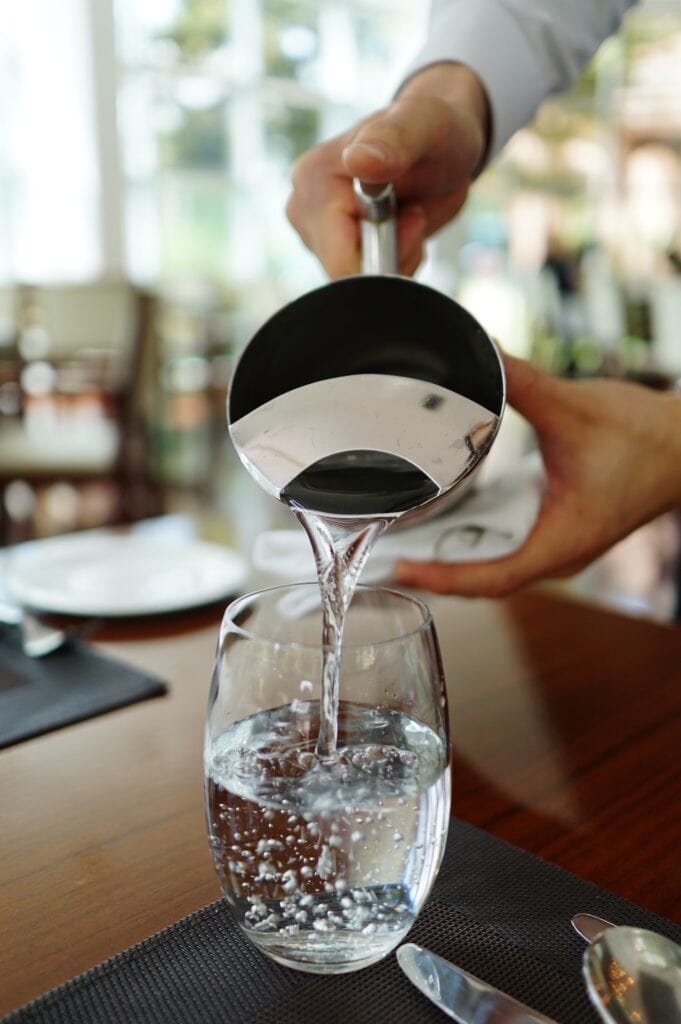We are made of approximately 60% water, so no wonder that staying hydrated is top on the list for a healthy lifestyle. Not only it keeps your body clean of toxins, but water also regulates its temperature and has a beneficial impact on different health issues. Other benefits of consuming a proper amount of water include preventing headaches, increasing brain function, or treating kidney stones.
But does drinking water help allergies? Studies show that there is a connection between dehydration and the pesky allergy symptoms that bother more than half of Americans.
Let’s see below why it’s so important to drink water if you suffer from an allergic reaction and how it can alleviate symptoms.
Dehydration and Allergies
Since there is no specific cure for allergies, managing the symptoms is key. Your doctor can recommend the best treatment for you, however, drinking water can help you diminish the severity of allergic reactions. The most common indicators of an allergic reaction include sneezing, runny nose or watery eyes. We always recommend having a consultation with a board-certified allergy specialist in case you notice any of these symptoms because it’s important to get the right diagnosis and treatment plan. Dehydration happens when your body loses more fluid than you take in and dehydration is one of the most overlooked allergy symptoms. In this case, your immune system is weakened which makes you more vulnerable to bacteria or viruses. Moreover, if your nose, throat or mouth are well hydrated, it’s more difficult for allergens to enter your respiratory system. This is because the extra fluids delivered to your nasal passage encourage sinus drainage.
In case of an allergic reaction, your immune system responds to potential allergens (like pollen, dust mites, or pet dander) by releasing a substance called histamine to stop the allergens from entering your body.
What is histamine?
Simply put, histamines are chemicals your immune system makes to help protect your body from harmful “invaders”, such as allergens and it plays a key role when it comes to regulating your body’s inflammation responses. As part of your body’s defense system, histamines can make you itch or sneeze or itch, and the medicines used to alleviate allergy symptoms are therefore called antihistamines.
In case of dehydration, the amount of histamines in your body grows to preserve the body’s fluid intake.
For instance, in the case of one of the main culprits of Phoenix allergies, like pollen, in case it enters through your respiratory system(via your nose or mouth), histamines will cause more mucus, which leads to a stuffy or runny nose.
Don’t forget to always stay well-hydrated: it will reduce the number of histamines in your body and ultimately alleviate your allergy symptoms.
We recommend checking with a physician for adequate medication in case of allergies, but if you take antihistamines regularly, make sure you monitor your hydration levels, as these medications contribute to dehydration making your body more susceptible to bacteria or viruses.
The importance of the water source
Some studies show that certain substances found in drinking water such as chlorine or fluoride can worsen asthma symptoms and trigger allergic reactions. These are chemicals used to kill bacteria in tap water.
The fumes produced by chlorine are responsible for dry skin, itching or skin irritations, so make sure you filter your drinking water and check the source.
Stay hydrated
Staying hydrated is imperative not only in case of allergies but also to ensure your body’s correct function. If you suffer from allergies, dehydration can contribute to worsening your symptoms. Even if you have to make sure you stay hydrated throughout the day, one of the most important times to drink water is in the morning and in between meals to help with correct digestion.
Although one glove doesn’t fit all, experts recommend having 8-ounce glasses of water per day, also known as the “8×8” rule and the Institute of Medicine suggests a minimum intake of 3.7 liters for men and 2.7 liters for women.
The takeaway
As seen above, drinking water can help with allergies, and it is an efficient tool when it comes to managing your symptoms. Dehydration has an important role in making the symptoms worse, however, water itself is not a cure for allergies. Getting help from a medical professional is the most important thing to do in case you are suffering from allergic reactions. Our team of allergy associates can help you with the diagnosis and the right treatment plan.
Get in touch today for more information!



